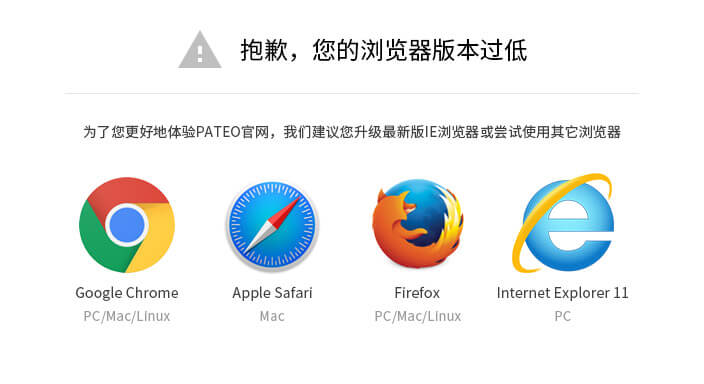
News on the official website is being updated.
Please stay tuned.
Please stay tuned.
Company
Investor Relations
Contact Us
沪ICP备11050689号-2  沪公网安备 31010402000676号
沪公网安备 31010402000676号
Copyright © 2025 PATEO Inc. All rights reserved
 沪公网安备 31010402000676号
沪公网安备 31010402000676号 Copyright © 2025 PATEO Inc. All rights reserved
沪ICP备11050689号-2  沪公网安备 31010402000676号
沪公网安备 31010402000676号
Copyright © 2025 PATEO Inc. All rights reserved
 沪公网安备 31010402000676号
沪公网安备 31010402000676号 Copyright © 2025 PATEO Inc. All rights reserved

